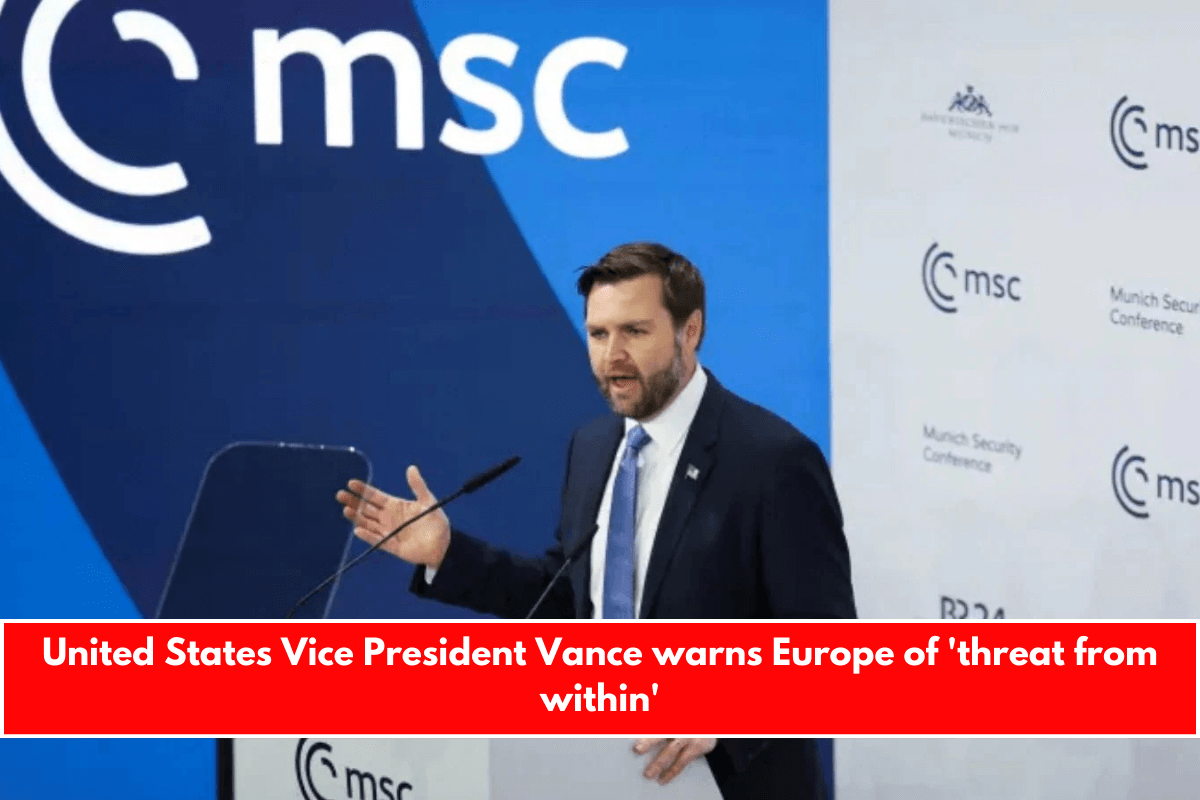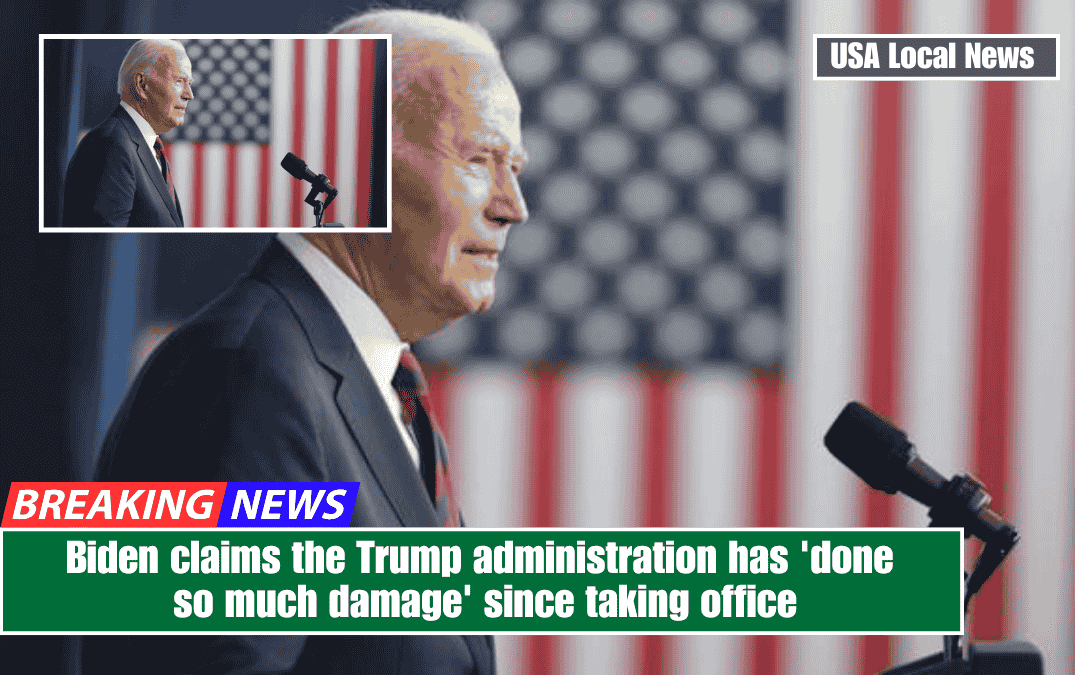US Vice President JD Vance stunned top-level dignitaries at the Munich Security Conference (MSC) on Friday by sharply criticizing mainstream European politicians as insufficiently democratic, demanding greater openness to right-wing populists, and advocating for a migration crackdown.
Vance delivered his speech as a broadside to mostly European leaders gathered at the Bayerischer Hof Hotel in Munich, eschewing a speech focused on geopolitical threats in favor of what he argued was his more pressing concern: European leaders themselves.
“The threat I worry most about vis-a-vis Europe is the threat from within – the retreat of Europe from some of its most fundamental values, values it shares with the United States of America,” claimed Vance.
The US vice president accused European allies of suppressing free speech, and he chastised mainstream European politicians for focusing on Russian misinformation while attempting to isolate populist right-wing political parties and ignore the backlash against mass immigration.
Vance argued that “nothing is more urgent than mass migration.”
He also provided a series of anecdotes from Germany to Sweden to the United Kingdom, claiming that “basic liberties” were being eroded: “In Britain and across Europe, free speech, I fear, is in retreat.”
End to political ‘firewalls’
Vance warned the European establishment against ignoring voter will by keeping populist parties out of power, calling for the abolition of political “firewalls”.
He implied that “no democracy” would survive by “telling millions of voters that their thoughts and concerns, their aspirations, their pleas for relief, are invalid or unworthy of even being considered.”
“We should not be afraid of our people, even when they express views that disagree with their leadership,” he said, noting that populist parties on the left and right had not been invited to the MSC.
His remarks come just over a week before German elections, in which the mainstream parties have pledged to keep the far-right Alternative for Germany (AfD) out of power, despite polling in second place.
Vance went even further in an interview with the Wall Street Journal published earlier on Friday, telling German political parties to begin cooperating with the AfD, a subject considered taboo by the political mainstream.
Europe’s von derLeyen lays out defence vision
The MSC is a significant annual gathering of global leaders and foreign policy experts. The three-day event was expected to attract 60 world leaders and over 100 ministers.
The Ukraine conflict, the situation in Israel and the Palestinian Territories – where US President Donald Trump has advocated for resettling all Gazans and allowing the US to take control of the Gaza Strip – and Syria, where Islamist rebel groups have recently gained power, are all high on the agenda.
Shifts in US policy toward Ukraine and Gaza since Trump’s arrival in the White House have caused concern ahead of the meeting.
One of the key speakers before Vance on Friday, European Commission President Ursula von der Leyen, revealed that she wants to allow the European Union to increase defense spending by deviating from the bloc’s strict debt rules.
Trump has made it clear that European allies must increase their defense spending.
EU member countries are required to keep their deficits below 3% and their debt ratios below 60% of GDP, but von der Leyen stated that a relaxation of the rules “will allow member states to substantially increase their defence expenditure.”
“I will also propose a wider package of tailor-made tools to address the specific situation of each and every one of our member states, from their current levels of defence spending to their fiscal situation,” von der Leyen added.
The threats posed by Russia, as well as concerns that the United States may provide less security for Europe, are increasing pressure on EU countries to increase defense spending.
According to von der Leyen, the EU’s 27 member states currently spend around 2% of their GDP on defense, up from just over €200 billion before the war in Ukraine to more than €320 billion by 2024.
“But we will need to increase that number considerably once again, because from just below 2% to above 3% will mean hundreds of billions of euro of more investment every year.”
German president warns of ‘unprecedented’ US power
During his opening remarks at the Munich conference, German President Frank-Walter Steinmeier warned against Trump’s departure from the traditional international rules-based order.
“I believe a historically unprecedented concentration of technological, financial and political power is currently emerging in the United States,” according to Steinmeier.
“As a democrat, I am very concerned when a small entrepreneurial elite has the power, the means and the will to redefine a significant part of the rules of liberal democracy,” he told reporters. “And I am even more concerned when some of this elite make no secret of their contempt for the institutions and norms of our democracy.”
“Democracy is not a playground for disruption; Disruption is a term that tech entrepreneurs and political populists like to use at the moment,” he claimed.
Steinmeier also emphasized Germany’s reliability as a stable ally and partner in the heart of Europe, despite a rare bout of political unrest in November that triggered the upcoming early elections on February 23.
“You can rely on Germany. “You can count on us,” Steinmeier stated.
“I say to our partners and friends: German foreign and security policy remains European, remains trans-Atlantic and remains multilateral,” according to him.











